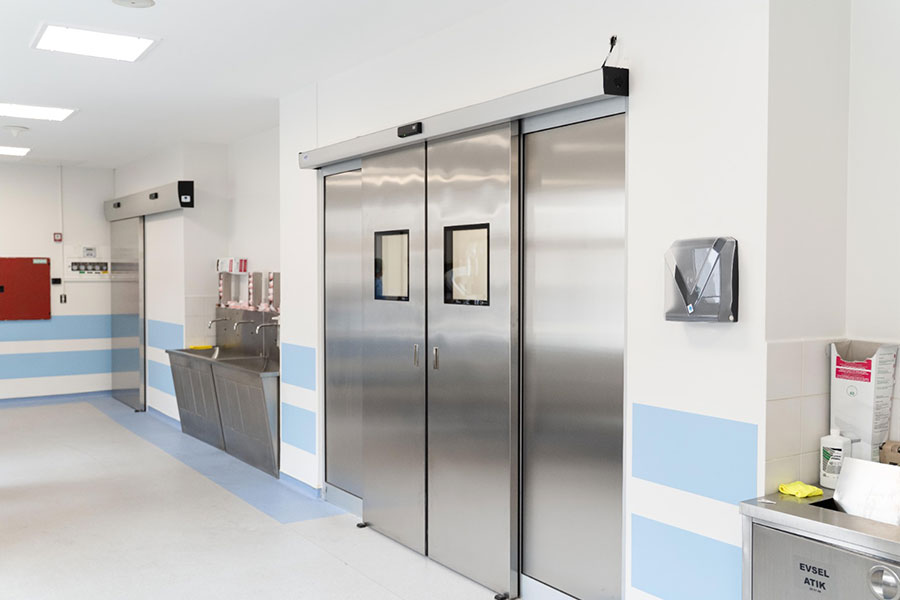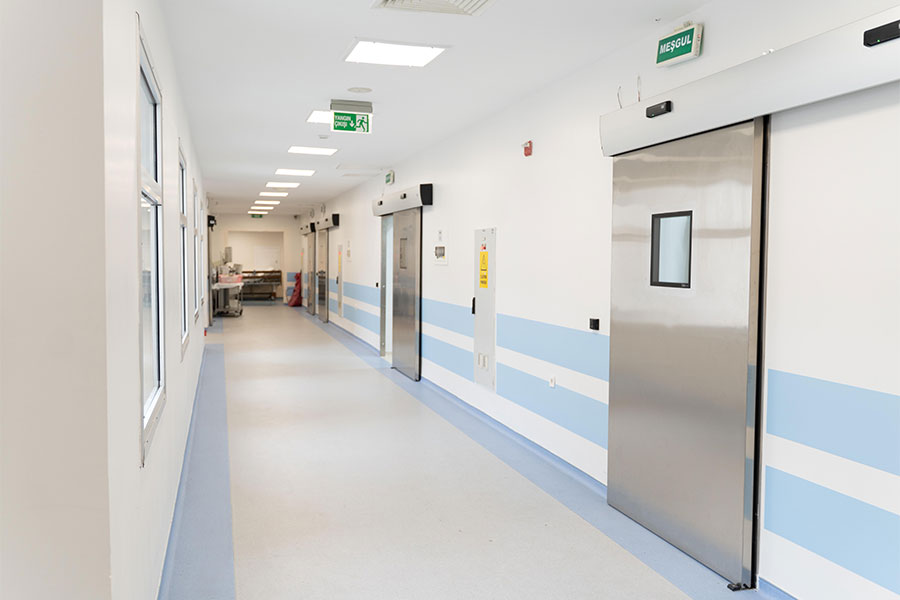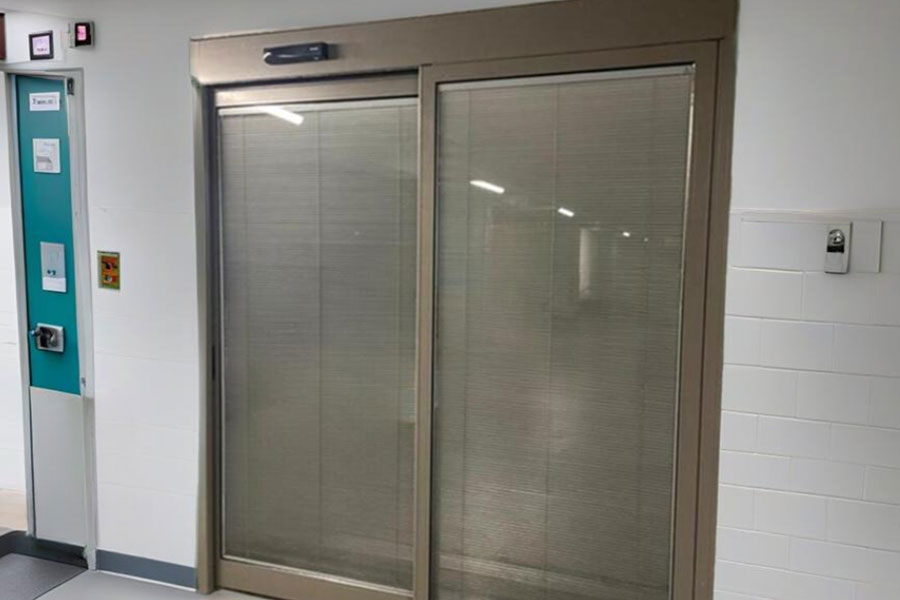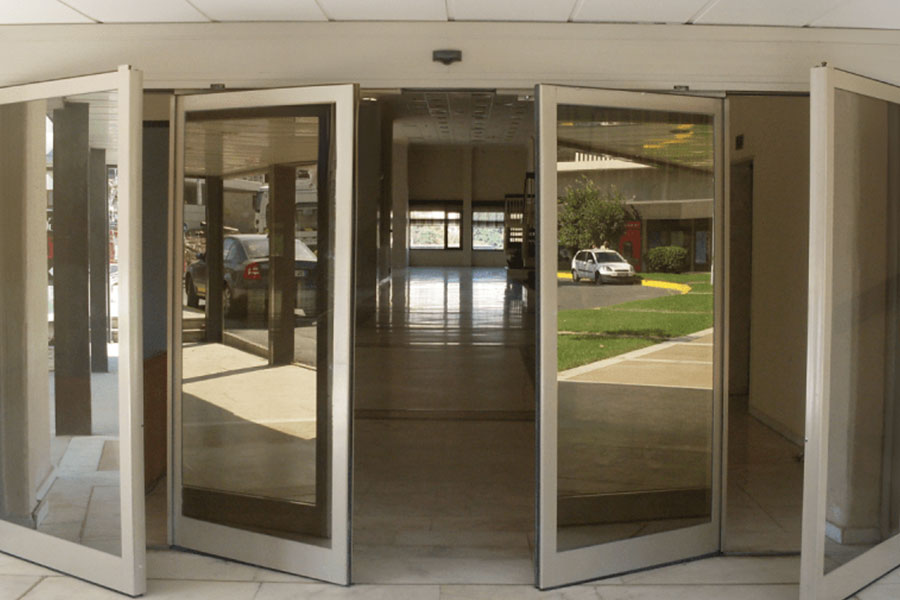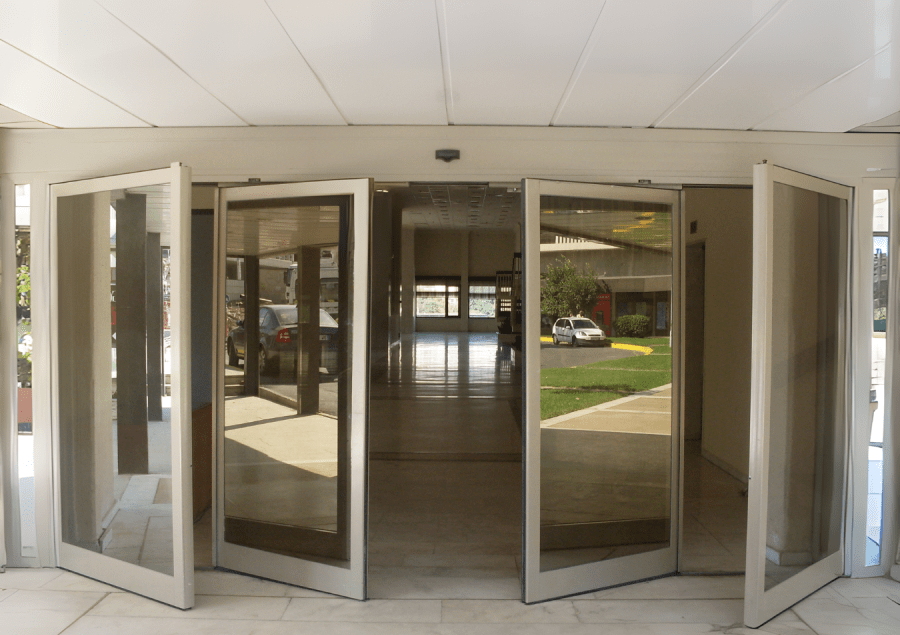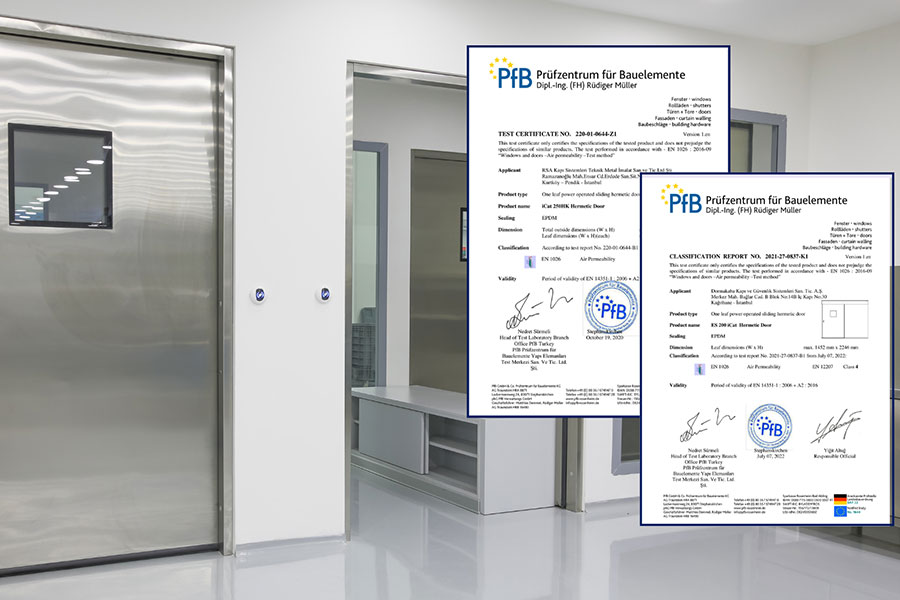
Why Air Permeability Matters in Hospital Doors?
Air permeability, or airtightness, refers to a door's ability to prevent air from passing through when closed. In a hospital environment, controlling airflow is crucial for infection control, maintaining cleanroom standards, and ensuring proper ventilation in different areas.
Why is Air Permeability Important in Hospital Doors?
1. Infection Control
Doors with low air permeability prevent the spread of airborne contaminants and pathogens, reducing the risk of cross-contamination and infection. This is especially critical in areas such as operating rooms, isolation wards, and intensive care units.
2. Maintaining Pressure Differences
Positive pressure rooms are designed to keep contaminants out, while negative pressure rooms contain harmful particles within a specific area. Doors with low air permeability help maintain these pressure differences and ensure that clean air stays inside.
3. Energy Efficiency
Properly sealed doors prevent the loss of conditioned air, contributing to energy efficiency. This reduces the load on the hospital's HVAC systems and lowers energy costs.
4. Comfort and Noise Reduction
Doors with low air permeability create a quiet and comfortable environment for patients and staff. This is particularly important for maintaining a peaceful atmosphere during patients' recovery.
What is Class 4 Airtightness Certification?
Class 4 airtightness certification indicates that the door provides the highest level of air tightness. This class guarantees the highest hygiene and pressure control standards for hospitals.
Conclusion
When selecting a hospital door, air permeability is a critical factor alongside weight, durability, functional efficiency, material, and hygiene. Doors with low air permeability enhance infection control, maintain pressure differences, improve energy efficiency, and provide a quiet environment.
Latest Posts
-
 Hygiene, Sealing, and Engineering Quality in Operating Room Doors: The Contribution of Manufacturing and Assembly Processes to Operational Effectiveness25 Aralık 2025
Hygiene, Sealing, and Engineering Quality in Operating Room Doors: The Contribution of Manufacturing and Assembly Processes to Operational Effectiveness25 Aralık 2025 -
 Security, Stability, and Comfort in Revolving Doors: The Indispensable Entrance Technology for Modern Buildings25 Aralık 2025
Security, Stability, and Comfort in Revolving Doors: The Indispensable Entrance Technology for Modern Buildings25 Aralık 2025 -
 Performance Enhancement in Industrial Factory Doors: The Technical Importance of Sectional Doors, High-Speed PVC Doors, and Integrated Solutions for Loading Systems25 Aralık 2025
Performance Enhancement in Industrial Factory Doors: The Technical Importance of Sectional Doors, High-Speed PVC Doors, and Integrated Solutions for Loading Systems25 Aralık 2025 -
 Excellence for Cleanroom Doors: Manufacturing Technologies, Application Methods, and Ensuring High Standards.25 Aralık 2025
Excellence for Cleanroom Doors: Manufacturing Technologies, Application Methods, and Ensuring High Standards.25 Aralık 2025 -
 Automated Door Systems: Comfort, Efficiency and Technology in Modern Buildings14 Ekim 2025
Automated Door Systems: Comfort, Efficiency and Technology in Modern Buildings14 Ekim 2025 -
 Hermetic Doors: 7 Key Features to Consider for Industrial and Medical Applications27 Eylül 2025
Hermetic Doors: 7 Key Features to Consider for Industrial and Medical Applications27 Eylül 2025 -
 The Modern Appeal of Sectional Doors15 Ocak 2025
The Modern Appeal of Sectional Doors15 Ocak 2025 -
 The Station Nightclub Fire: Importance of Breakout Door Usage10 Ocak 2025
The Station Nightclub Fire: Importance of Breakout Door Usage10 Ocak 2025
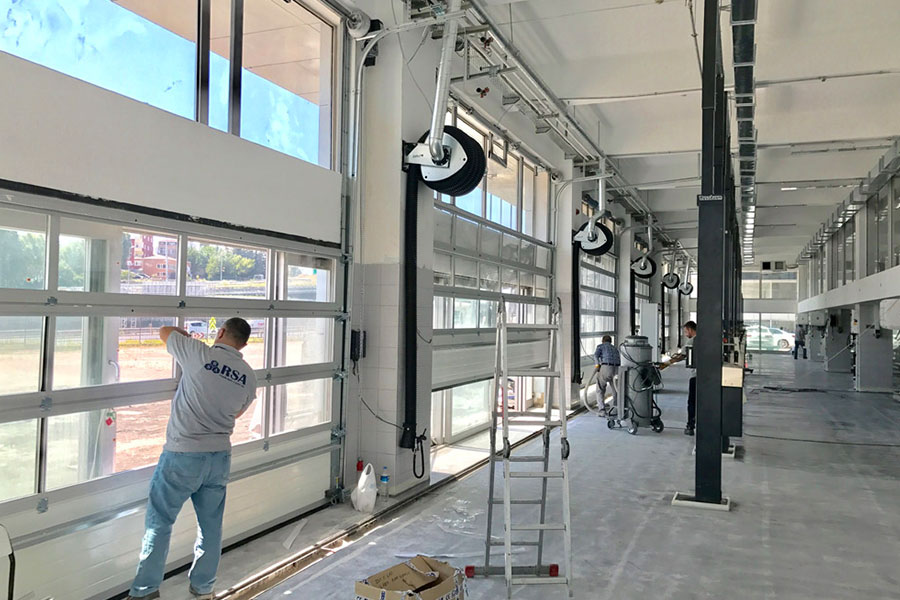
Every Entrance is Special: If Quality Products are Positioned Correctly..
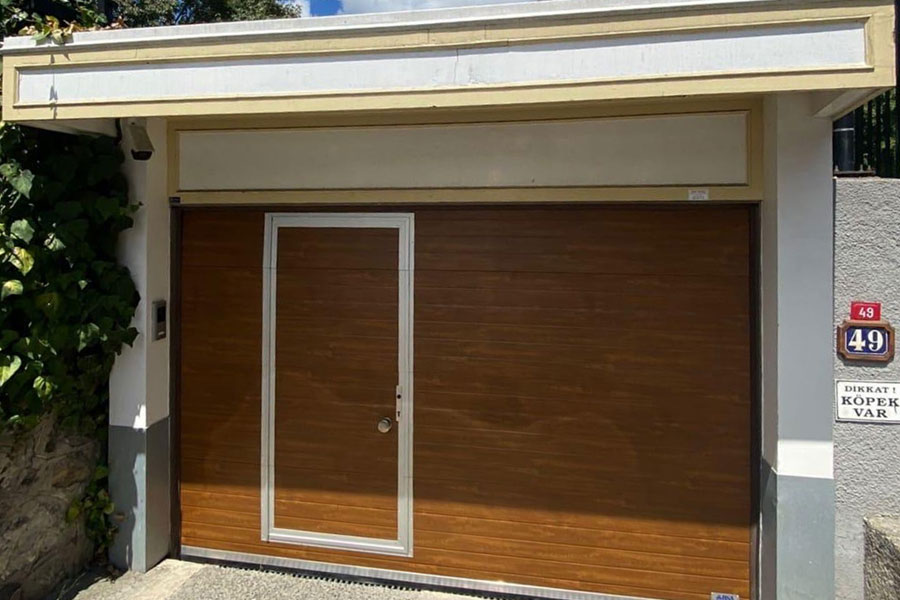
Maximize Space, Security and Aesthetics with Sectional Garage Doors

The Impact of Automatic Doors on Customer Experience in the Retail Sector

Hermetic Doors: 7 Key Features to Consider for Industrial and Medical Applications

Automated Door Systems: Comfort, Efficiency and Technology in Modern Buildings

Hygiene, Sealing, and Engineering Quality in Operating Room Doors: The Contribution of Manufacturing and Assembly Processes to Operational Effectiveness



